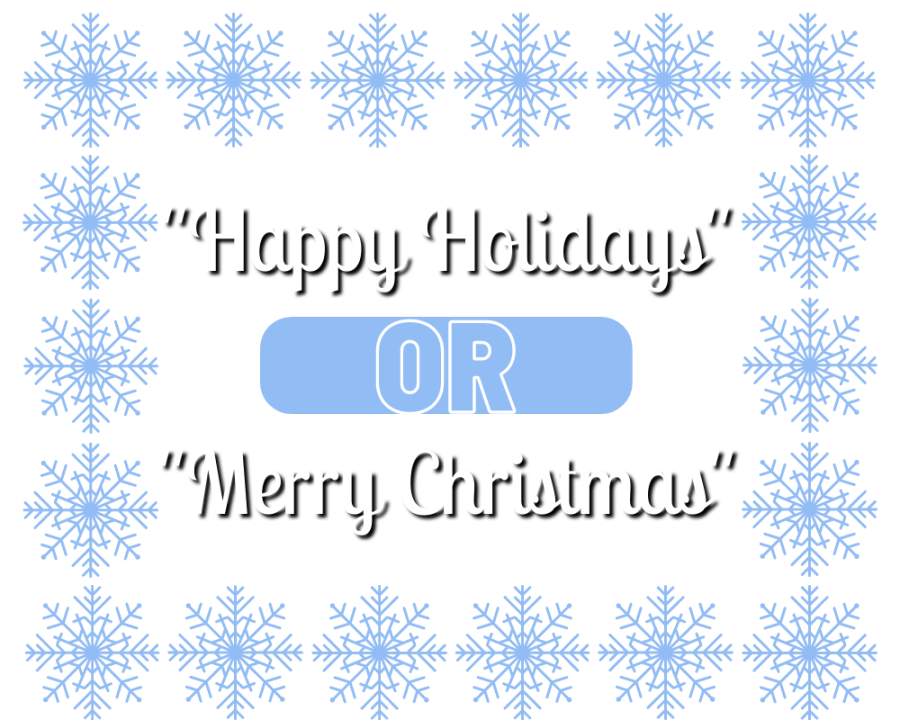December celebrations
Not every religion, culture celebrates Christmas
Hello, salute, buenos dias or bonjour are just a few out of the many greetings and goodbyes that are often used by people every single day. Who would have thought that by blindly saying “Merry Christmas” without knowing what the person celebrates could possibly be a controversial saying? It is not controversial because people that hate Christmas are shunning others for saying to have a merry one, it is because not everyone celebrates Christmas and there are other ways to wish a person a happy day during the holiday season.
Christmas is just one of the few holidays that are celebrated during the winter months. Ninety-two percent of Americans celebrate the Christmas season and follow the classic traditions that “most” people follow. This is a Christian celebration with traditions that may include tree and cookie decorating, hanging up lights outside of houses, going to church Christmas Eve, opening gifts on the morning of Dec. 25. and others, depending on the family. Although percentages of celebration are not as large as Christmas’, Hanukkah and Kuanzaa are also celebrated during December, they are just as important and should be recognized as well.
Hanukkah is the eight-day Jewish celebration, also known as Chanukah. This holiday commemorates the rededication during the second century B.C. of the Second Temple in Jerusalem, which had risen up against their Greek-Syrian oppressors in the Maccabean Revolt. Many people have heard of the Menorah lighting each of the eight-days, but other traditions like playing the dreidel game, eating gelt, cooking and baking delicious foods and enjoying the fun of Hanukkah gifts are popular as well. The days celebrated change each year because they follow the Hebrew calendar, but are always on the 25th day of Kislev, which is a date from said calendar. These eight-days normally fall between late November and December.
Another holiday celebrated is Kwanzaa, a cultural celebration as opposed to other religious holidays that are celebrated and just as important as the as well. This holiday honors African heritage in African-American culture from Dec. 26. to Jan. 1. Kwanzaa celebrators participate in preparing and sharing food, reflecting on the principle of the day and honoring ancestors. Lighting candles is a tradition also followed in this culture but for a different reason. Each candle lit represents something different, the principles as previously mentioned are Umoja (unity), Kujichagulia (self-determination), Ujima (work and responsibility), Ujamaa (cooperative economics), Nia (purpose), Kuumba (creativity) and day seven is Imani (faith).
Being aware of the other holidays that are celebrated besides just Christmas is one step closer to a world with less group identification and more inclusivity to people who follow traditions different than one’s own. Americans have the freedom to express and say almost whatever they want, but a simple “Happy Holidays” may just be the reliever someone needs to hear this season that will make them feel even just a tad more included.



